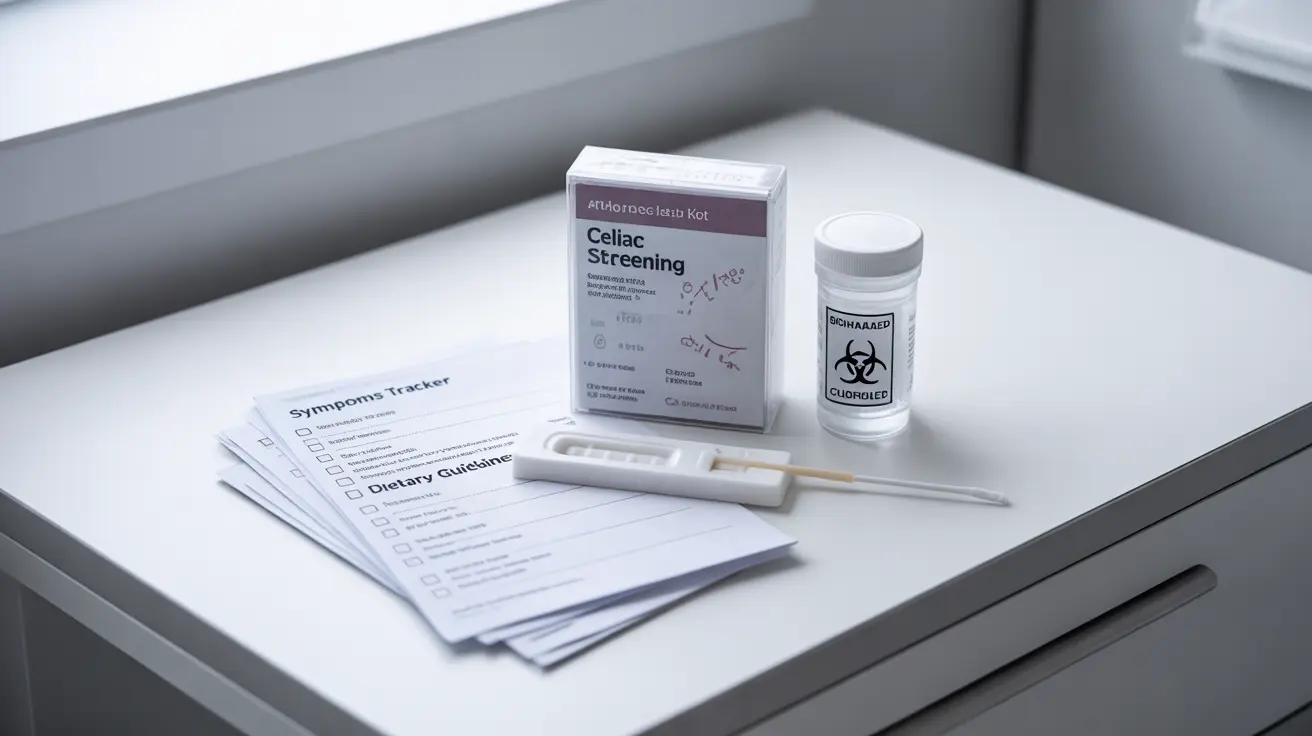If you suspect you might have celiac disease, at-home testing options can provide initial insights into your condition. However, understanding the different types of tests available, their limitations, and proper testing protocols is crucial for getting reliable results.
This comprehensive guide will explore the various at-home celiac disease testing options, their accuracy compared to traditional laboratory testing, and important considerations before choosing this testing route.
Types of At-Home Celiac Disease Tests
Antibody Tests
At-home celiac antibody tests typically measure tissue transglutaminase (tTG) antibodies in your blood. These tests usually involve collecting a small blood sample through a finger prick and sending it to a laboratory for analysis.
While these tests can detect potential celiac disease markers, their accuracy depends heavily on maintaining a gluten-containing diet before testing. Eliminating gluten beforehand can lead to false-negative results.
Genetic Tests
Genetic testing looks for specific HLA-DQ2 and HLA-DQ8 genes associated with celiac disease. These tests typically use a cheek swab or saliva sample and can determine if you carry genes that make you susceptible to developing celiac disease.
It's important to note that having these genes doesn't necessarily mean you have or will develop celiac disease – it only indicates a genetic predisposition.
Important Testing Considerations
Preparation Requirements
For antibody tests to be accurate, you must continue eating gluten-containing foods for at least six weeks before testing. A gluten-free diet can interfere with test results and potentially mask the presence of celiac disease.
Test Reliability
While at-home tests can provide preliminary information, they shouldn't be considered definitive diagnostic tools. Laboratory-based testing ordered by healthcare providers typically offers higher accuracy and reliability.
Cost Considerations
At-home celiac tests can range from $70 to $200 or more. While this might seem cost-effective compared to medical visits, remember that positive or inconclusive results will still require follow-up with a healthcare provider.
When to Seek Medical Care
If you experience symptoms such as chronic diarrhea, unexplained weight loss, fatigue, or persistent digestive issues, it's important to consult with a healthcare provider regardless of at-home test results. They can provide proper diagnosis and guidance through comprehensive testing methods.
Frequently Asked Questions
How accurate are at-home celiac disease genetic and antibody tests compared to lab testing?
At-home celiac tests are generally less accurate than laboratory tests performed through healthcare providers. While genetic tests can be reliable for identifying predisposition, antibody tests may have varying accuracy levels depending on proper test administration and dietary compliance.
Can I rely on an at-home celiac test to diagnose celiac disease without seeing a doctor?
No, at-home celiac tests should not be used as the sole basis for diagnosis. These tests can provide preliminary information, but a proper diagnosis requires comprehensive evaluation by a healthcare provider, including blood tests and often an intestinal biopsy.
How do genetic and antibody at-home celiac tests differ in what they detect?
Genetic tests identify specific genes (HLA-DQ2 and HLA-DQ8) that indicate susceptibility to celiac disease, while antibody tests measure specific proteins in your blood that suggest an active immune response to gluten. Genetic tests show potential risk, whereas antibody tests indicate current immune activity.
Should I be on a gluten-containing diet before taking an at-home celiac antibody test?
Yes, it's essential to maintain a gluten-containing diet for at least six weeks before taking an antibody test. Eliminating gluten before testing can lead to false-negative results and compromise the test's accuracy.
What are the next steps if my at-home celiac test result is positive or inconclusive?
If you receive a positive or inconclusive at-home test result, schedule an appointment with a healthcare provider. They will likely recommend comprehensive laboratory testing and possibly an intestinal biopsy to confirm the diagnosis and develop an appropriate treatment plan.




